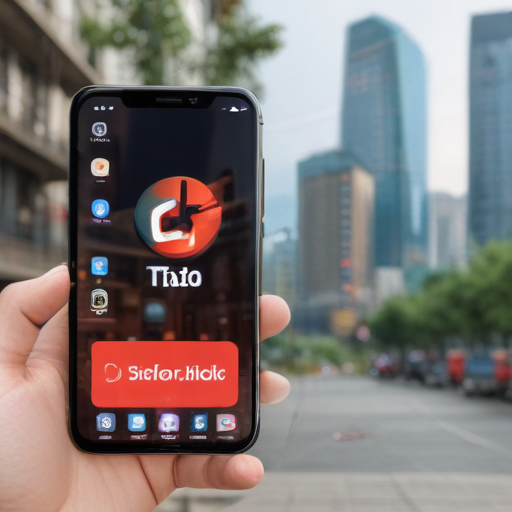As discussions in the Supreme Court continue regarding TikTok’s future in the United States, many American users are shifting their attention to an unexpected rival: Xiaohongshu, known as the “Little Red Book,” which has exploded in popularity among U.S. users amid the uncertainty surrounding TikTok.
On Tuesday, Xiaohongshu reached the top of Apple’s U.S. App Store charts, as users flocked to the platform in what they are calling a defiant response to potential government restrictions on TikTok. The app, which boasts around 300 million users globally, primarily focuses on lifestyle content similar to Instagram, featuring posts about travel, fashion, and beauty.
American migrants to Xiaohongshu have been vocal about their reasons for the switch. With the hashtag “TikTok refugee” amassing nearly 60 million views, users express that they are seeking alternatives and community under what they view as an oppressive stance from U.S. policymakers. One user shared, “Our government is out of their minds if they think we’re going to stand for this TikTok ban.”
Interestingly, this influx has led to a unique cultural exchange between American users and existing Chinese users on Xiaohongshu. Many newcomers are reaching out to ask for a harmonious interaction and respect, with some Chinese users welcoming them and even providing guidance on how to navigate the platform. This moment has sparked hope for meaningful dialogue and connection, bridging a gap that rarely occurs between these two cultures. Ivy Yang, a tech analyst, noted this may lead to significant cultural exchanges, saying, “This community building happening in real time could have lasting impact, and I’m cautiously optimistic.”
In comparison to TikTok, Xiaohongshu operates differently. It prioritizes user interests in its content algorithm rather than follower count, which some users argue fosters authenticity over influencer dominance. While TikTok is not available in China—where its sister app, Douyin, serves the domestic audience—Xiaohongshu has started to attract a diverse user base, which could redefine how cross-cultural interactions evolve online.
Additionally, other apps are also seeing a rise in downloads. Lemon8, another ByteDance platform that shares features with TikTok, is quickly climbing the ranks in the U.S. App Store. The looming ban on TikTok raises questions about the future of similarly situated applications like Lemon8, as they too may face challenges under U.S. legislation affecting ByteDance-owned services.
Overall, as users find refuge in Xiaohongshu, this moment represents not only an escape from political tensions surrounding TikTok but also an opportunity for cultural sharing that may continue to grow in significance. The evolving landscape highlights the adaptability of social media users, who continue to seek out platforms that resonate with their needs and interests.
